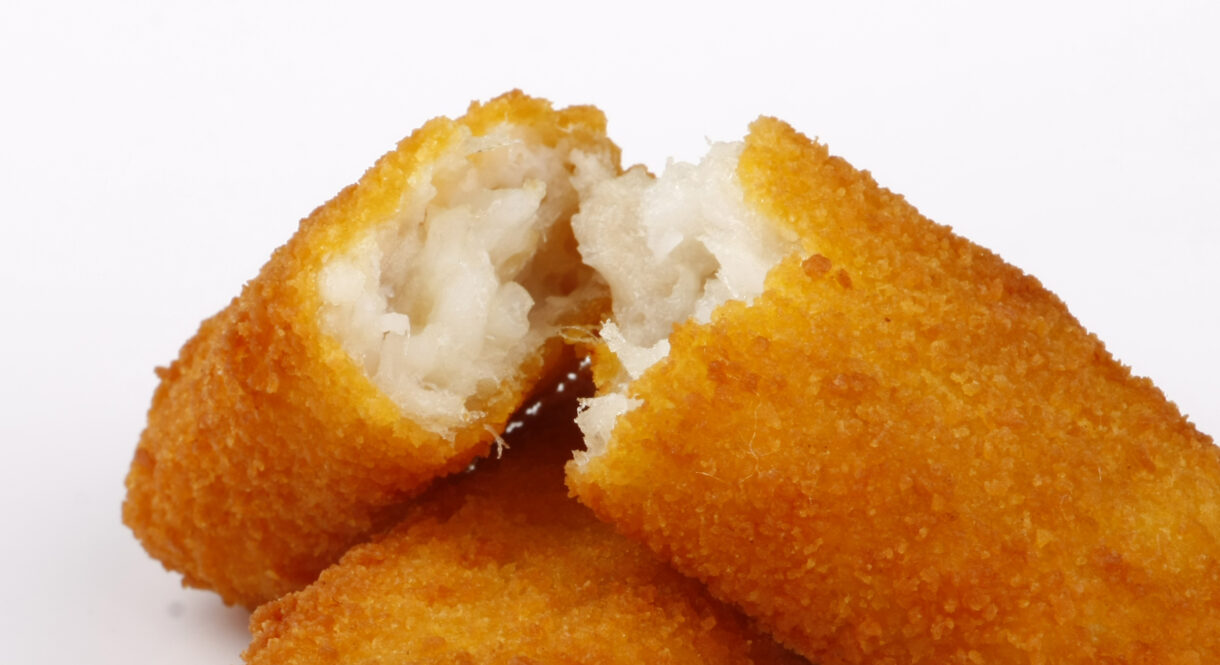17th of November, 2021
FoodIngredientsFirst speaks with Jos Hugense, CEO of Meatless, ahead of his presentation at Food Matters Live, who shares his vision on the plant-based market.
“The relative growth of the vegetarian market is spectacular and has never been seen before in the food industry. In the Netherlands and the UK, growth percentages were over 25% in 2020. However, it is still under 3% of the meat production.”
He urges that if the plant-based market goes up to 10% of meat consumption in the next decade, for example, scalability will be key.
“We need seriously efficient and sufficient production systems to deal with demand,” he adds.
 Meatless uses white rice fibers for applications such as its analog white fish or processed “chicken” (Credit: Meatless).
Meatless uses white rice fibers for applications such as its analog white fish or processed “chicken” (Credit: Meatless).
This might mean less use of separated proteins, more use of whole foods, increased use of energy-efficient low processed production or more local supply of raw materials, he suggests.
Briony Mansell-Lewis, director of Food Matters Live, notes that, while technology will play a key role in future food systems, innovation and investment will be key to achieving impact at scale.
Swimming in opportunity
One area that Meatless sees great opportunity in is plant-based fish. Recent innovation has centered around white fish analogs, Hugense affirms. However, other high-quality fish types are now emerging.
“Keep your eye on analog fish,” advises Hugense. “It is now still a small part of vegetarian production, but it is growing relatively fast and will be an important factor in the future.”
The ever-increasing demand for fish will have consequences for the availability of fish in the world, he adds. “There is a real need to improve the quality of solutions, like surimi, to ease off the demand for fish.”
Future fish analogs
Meatless produces a range of textured products based on whole foods like rice, pea, quinoa, wheat and fava bean. Its white rice fibers are employed for applications such as its analog white fish or processed “chicken.”
The company’s salmon and tuna substitutes are also in their final phases of development, with the first prototypes to be presented at Fi Europe in Frankfurt this winter. Final products are expected in Q1 or Q2 of 2022.
Earlier this March, Planteneers debuted its first alt-tuna and vegan salmon for sushi applications. And last year, Nestlé rolled out Vuna, a plant-based alternative to tuna, revealing that more seafood analogs were on the way.
 Hugense flags that efficient and sufficient production systems are needed to deal with ballooning plant-based demand (Credit: Meatless).
Hugense flags that efficient and sufficient production systems are needed to deal with ballooning plant-based demand (Credit: Meatless).
Advancing product quality
During his talk at Food Matters Live, Hugense will also advise on ways to improve plant-based products for scalability, as well as competitiveness and sustainability.
“We want to meet food processing companies, R&D teams, management and commercial executives to show them what we do,” says Hugense. “Using plant-based products means new and promising opportunities for better food production.”
“Fifteen years of innovation has brought Meatless to the position it has now as a main producer of texture to the food business. We can also produce at high volumes and competitive pricing, fueling the fast-growing vegetarian markets and the demand for more plant-based solutions.”
Some of the questions he and his colleague Eric Tetteroo, senior technical sales manager will pose to food developers include: “Do you source raw materials locally? How are your products more sustainable compared to other textures? Are you considering hybrid products? What do you think about cellular agriculture?”
For Meatless, cellular agriculture has some potential in the future, but the sector is currently too small for the company as it is in its strong growth phase.
Hugense foresees it will take another decade before “serious market concepts” can be produced in high volume.


